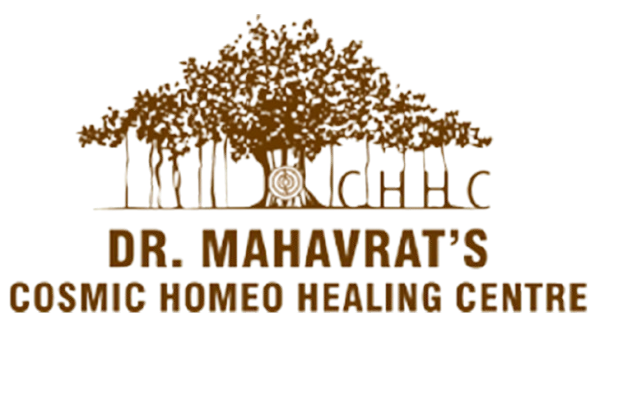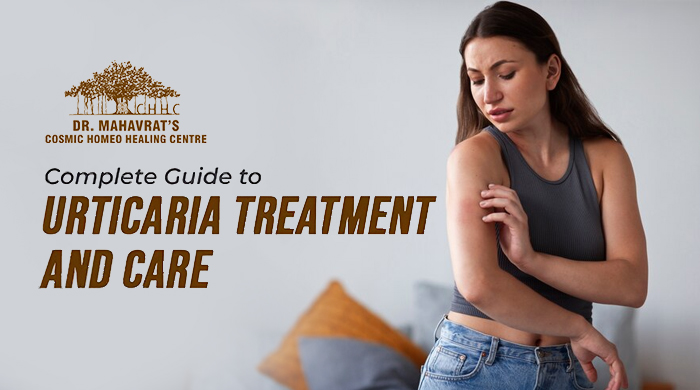When Priya woke up one morning with red, itchy welts across her arms, she brushed it off as a mosquito bite reaction. But as the days went by, the rashes spread to her neck and back, appearing and disappearing unpredictably. The constant itching and discomfort began to affect her sleep and even her confidence at work. A visit to the doctor finally gave her the diagnosis: Urticaria, commonly known as hives.
Priya’s story is not unusual. Many people experience urticaria at some point in their lives, and for some, it becomes a long-term challenge. The good news is, with the right care and treatment, urticaria can be managed effectively.
What is Urticaria?
Urticaria is a skin condition where itchy, raised rashes or welts appear suddenly. They may last a few hours or persist for weeks. The condition is often triggered by allergies, stress, certain foods, medications, or even changes in weather.
Doctors classify it as:
● Acute urticaria – lasting less than 6 weeks, often linked to infections, food, or drugs.
● Chronic urticaria – lasting more than 6 weeks, often without a clear cause, but related to immune system overreactions.
Urticaria Treatment – What Works?
The approach to urticaria treatment depends on the type, triggers, and severity of symptoms.
Identifying Triggers
The first step is observation. Keeping a symptom diary helps identify what sets off the rashes – whether it’s seafood, heat, or stress. Avoiding triggers can prevent flare-ups.
How Homeopathy Helps?
Homeopathic medicines
1. Helps in detoxification and improving sluggish liver function, which may contribute to recurrent skin eruptions.
2. Modulates capillary fragility and allergic skin reactions, reducing the tendency of skin to react excessively.
3. Acts on the dermal blood vessels and sensory nerves, reducing the release of irritant mediators that cause itching and burning.
4. Modulates histamine-like inflammatory response in skin and capillaries.
Commonly used homeopathic medicines in the treatment of urticaria:
1. Copaiva
2. Apis melifica
3. Nux Vomica
4. Urtica Urens
5. Bovista
6. Antim crud
7. Anacardium
Note: Homeopathic medicines should not be self-administered. For safe and effective treatment, it is important to consult an experienced and qualified homeopathic practitioner.
A skilled homeopath carefully evaluates your past, medical, and family history, along with a detailed constitutional assessment (physical constitution, temperament, and individual characteristics), lifestyle factors, and mental-emotional status to determine the most suitable remedy.
Always seek guidance from a qualified practitioner who can provide proper case-taking, accurate remedy selection, and ongoing monitoring to ensure a safe and individualised healing journey.
Lifestyle Adjustments
Simple steps like wearing loose cotton clothes, avoiding hot showers, and managing stress can go a long way in controlling symptoms.
Skincare and Home Remedies
Applying a cool compress, using fragrance-free moisturisers, and avoiding harsh soaps can soothe irritated skin.
This highlights an important truth: urticaria treatment is not one-size-fits-all. It is a mix of medical guidance, self-care, and patience.
Living with Urticaria – Priya’s Turnaround
For Priya, treatment was not just about medication. At CHHC, we helped her recognise that stress was a major trigger in her case. Along with medicines, she started practising yoga and kept a food journal to avoid allergens. Within weeks, her flare-ups reduced, and she regained her peace of mind.
When to Seek Medical Help
While mild hives can settle on their own, you should consult a doctor if:
● Rashes are frequent and last longer than 6 weeks.
● You experience swelling around the lips, eyes, or throat.
● The itching and redness interfere with daily life.
Early intervention not only brings relief but also prevents complications.
Final Thoughts
Urticaria may seem frustrating, but it doesn’t have to control your life. With timely treatment, awareness of triggers, and the right support, most people find effective ways to manage it.
At CHHC, we believe in a holistic approach — combining medical expertise with personalized care, so patients like Priya can focus less on the rash and more on living their life with confidence.

